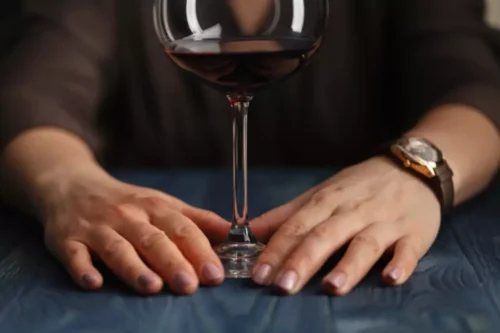
They may experience anxiety, panic attacks, Twelve-step program or physical symptoms like sweating and rapid heartbeat when confronted with wine. Joining support groups with individuals who have similar phobias, including Methyphobia, can provide a sense of understanding and encouragement. Sharing experiences and learning from others’ success stories can be empowering and help you navigate your journey towards overcoming your fear of alcohol. It’s important to remember that these symptoms can vary from person to person.
- This frequent societal norm may be used by someone with dipsophobia as confirmation that alcohol is something to be afraid of.
- They don’t know when or how, but they trust that it will happen.
- It’s important to find the treatment that’s right for you and to find something you feel comfortable doing.
- Generally, they will not feel comfortable in nightclubs or pubs.
- Then, they move on to more challenging scenarios, like attending social gatherings where others might be drinking.
What Is Dipsophobia?

Long-term management of phagophobia focuses on maintaining progress made during therapy and avoiding relapse. This could include ongoing therapy, either on a regular or as-needed basis, to reinforce the coping skills acquired during treatment. Individuals with phagophobia caused by previous medical issues or swallowing difficulties may benefit from speech or swallowing therapy. Speech-language pathologists (SLPs) can help people improve their swallowing mechanics, provide reassurance, and teach strategies for eating safely and comfortably. These therapies are frequently used in tandem with psychological treatment to provide a comprehensive approach.
There’s No Such Thing as a Pain-Free or Easy Sobriety

While some people are just scared of deep water or high waves, others avoid swimming pools and bathtubs. However, this phobia is different from thalassophobia which is fear of the ocean. For some people, aquaphobia may go away on its own, others may need therapy to control and treat their symptoms. Here’s everything you need to know about fear of water or aquaphobia, including its causes, symptoms, and prevention methods.
Definition Of Methyphobia
In fact, drinking can change the chemistry of the brain in a way that actually makes anxiety worse. Knowing how alcohol affects anxiety may make it less tempting to have a drink to cope. Society would have us believe that there’s no better way to unwind after a long day than by drinking a glass of wine, cold beer, or sipping your go-to liquor. But trying to relax with a drink or two may not give you the long-term anxiety relief you want.

It’s essential to understand this condition and recognize its symptoms to seek timely help. Dipsophobia (from Greek dipso, “thirsty” toward “drinking”) is the fear of drinking alcohol. People with this fear will tend to avoid a lot of social gathering where alcohol is consumed. Generally, they will not feel comfortable in nightclubs or pubs. Avoiding alcohol can be easy, but avoiding other people who drink liquor is considerably more difficult. This phobia can take its toll on a person’s family life, and may even have an adverse affect on romantic relationships.
- Methyphobia may often take a back seat to these conditions, and the danger of this if it happens, is that the phobia will go untreated.
- The results of these tests can help inform treatment planning and guide interventions to help individuals overcome their fear of water.
- Phobias are usually triggered by specific things, places, or situations, and CBT can help individuals to work through stressors in a safe environment.
Excessive alcohol fear of drinking consumption can affect our mood because it can lower the levels of serotonin in the brain. Serotonin is a feel-good brain chemical that when in short supply can cause feelings of anxiety and depression. You might even experience self-loathing after drinking, worrying about what you said or did or how much money you spent.


This hyperactivity can lead to shaking, light/sound sensitivity, and sleep deprivation. After alcohol adrenaline can also increase, another stress hormone. Stress can impact the immune system and make you more susceptible to things like the common cold and flu. One of the most common methods is exposure and response prevention (ERP) therapy. Originally developed to treat OCD, ERP is an evidence-based approach that is also highly effective for phobias and anxiety.
The human body is composed of approximately 60% water, making hydration crucial for overall health. Dehydration can lead to fatigue, headaches, and impaired cognitive function. Despite its importance, some individuals experience a genuine fear or aversion to drinking water. Methyphobia complications can involve the development of other phobias and anxiety disorders, leading to a significant impact on daily life and well-being. Dipsophobia symptoms are easy to spot as alcohol is widely and commonly consumed. It is easy to notice someone who has an irrational fear of drinking alcohol.
